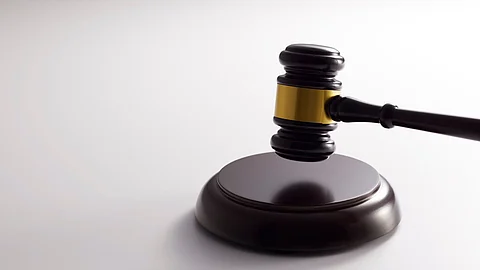

A RECENT REPORT made public by the Ministry of Social Justice and Development reveals that more than 97 percent of offences related to “untouchability” under the Protection of Civil Rights Act, 1955 (‘PCR Act’) remained pending before Indian courts as of 2022. What is more concerning is that the majority of the disposed cases result in acquittal. Of the 31 cases disposed of by courts that year, only one led to a conviction, while the rest ended in acquittals.
The data also shows a decline in the registered cases from 24 in 2021 and 25 in 2020 to only 13 cases in 2022. These cases were reported from Jammu and Kashmir (5), Karnataka (5), Maharashtra (2), and Himachal Pradesh (1). Additionally, no State or Union Territory has declared any area as “untouchability prone”. On the other hand, cases under the Scheduled Castes and Scheduled Tribes (Prevention of Atrocities) Act, 1989 have gone up steadily, with 62,501 cases reported in 2022. But here too, 94 percent of the cases remained pending.
The report also flags significant data gaps from various states and union territories. Arunachal Pradesh, Meghalaya, Mizoram, Nagaland, and Lakshadweep submitted “NIL” information regarding the implementation of the PCR Act. Manipur did not submit any information. Additionally, data on inter-caste marriage incentive schemes was either unreported or incomplete across most states. These figures don’t just reflect gaps in the legal process, they point to a deeper pattern of how caste-based discrimination continues to go unaddressed, both socially and institutionally.
Understanding Article 17 and the PCR Act
The Constitution guarantees a dignified and equal life for all, and in its realisation, Article 17 of the Indian Constitution abolishes the practice of Untouchability. It states that untouchability is forbidden in any form and any disability arising out of it shall be a punishable offence. To bring this provision to life, the Untouchability (Offences) Act, 1955 was enacted. Later in 1976, the act was amended and renamed as the PCR Act. The PCR Act provides punishment for the practice of untouchability. Sections 3 to 7A prescribe punishments for various religious, social, medical and economic disabilities. The primary responsibility of implementing the Act lies with the State governments and Union Territories.
However, the distance between constitutional promises and ground realities remains significant. While the PCR Act was meant to give Article 17 real-world force, its implementation has remained weak and inconsistent across states. Even the Atrocities Act seems incapable of addressing caste-based disability.
Furthermore, the PCR Act does not account for issues like underreporting driven by threats, social exclusion, and institutional barriers that marginalized communities face at every step of the way. The system designed to protect the victims places the burden of seeking justice entirely on those already marginalised, without offering meaningful external support. Additionally, the high rate of pendency and low rates of conviction only increases the vulnerability of victims, exposing them to prolonged harassment, both by the perpetrator and the system, without any promise of justice. And even if conviction happens (on rare occasions), most convicts are let out with token fines and negligible imprisonment.
In March this year, the Dalit community in Gidhagram in West Bengal successfully broke a caste-based prohibition to Gidheswhar Shiv temple under police protection. In September last year, a 30-metre ‘untouchability wall’ in Tamil Nadu’s Vishwanathan village to conceal the cremation ground used by Dalits was brought down. In Rajasthan’s Dev Doongri, upper caste Rawats disrupted a Dalit person’s funeral claiming that the government allocated burial ground was too close to their land.
Judicial accountability and the timely disposal of cases are essential to ensure that the constitutional guarantee under Article 17 is not rendered symbolic. When cases related to untouchability languish in courts for years with little to no convictions, various critical questions are bound to arise: Why are untouchability cases barely moving in courts? Has criminal law ever truly worked for Dalits or caste-oppressed communities?
The lack of urgency in trying such cases reflects an institutional failure to prioritise the lived realities of marginalised communities.